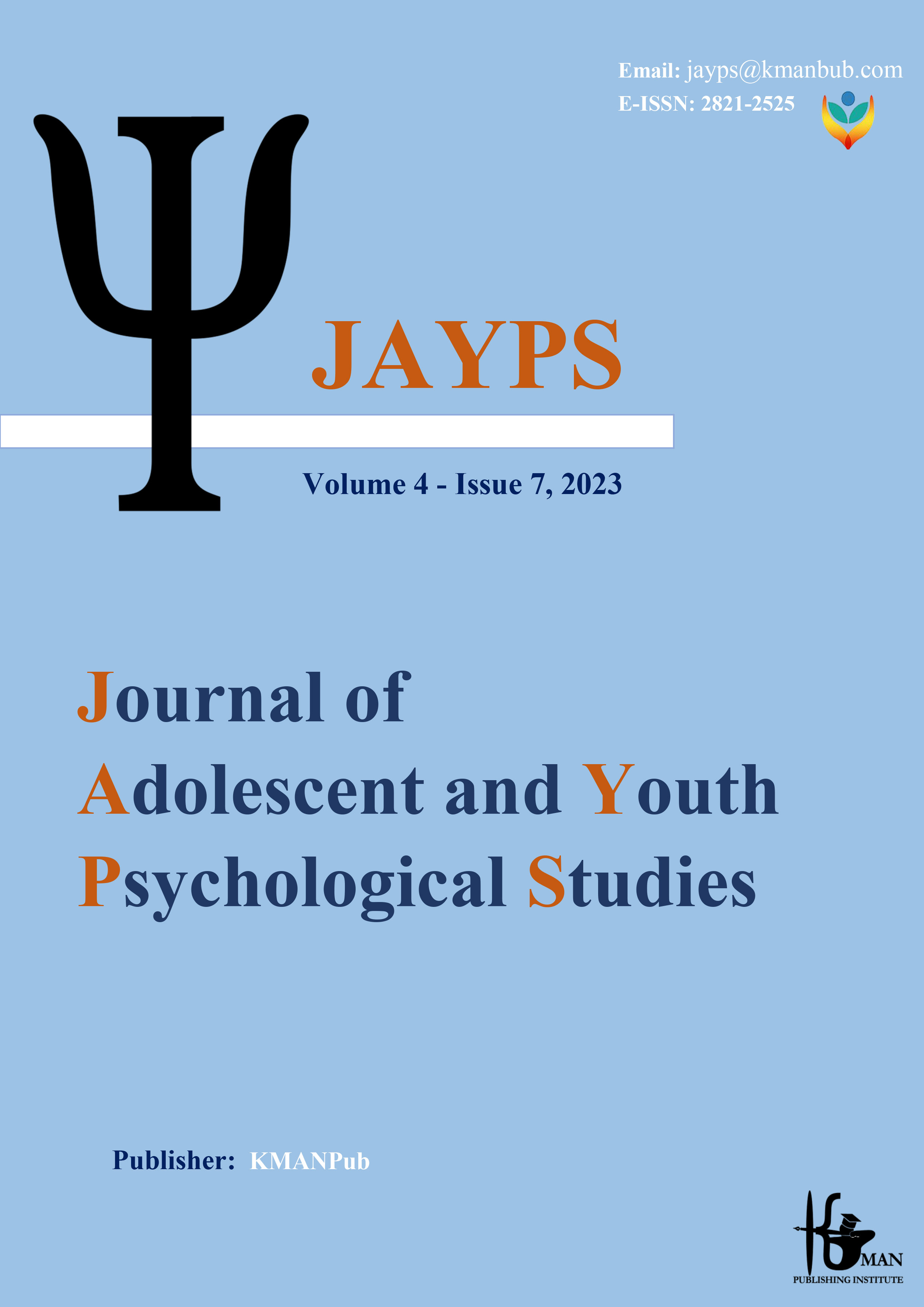The relationship between parenting styles and social adjustment of parents with children with learning disabilities: the mediating role of emotional regulation
Keywords:
parenting styles, social adaptation, learning disorder, emotional regulationAbstract
Background and Aim: Life skills, including social adaptation, play an essential role in life, and paying attention to parenting styles can play a role in social adaptation. Accordingly, the aim of this research was to investigate the relationship
between parenting styles and parents' social adjustment in children with learning disabilities. Methods: The current research method was applied in terms of purpose and descriptive in terms of correlation. The statistical population of the
research consists of all mothers aged 30 to 55 with children with learning disabilities in primary schools in Qom, 260 of whom have referred to learning disabilities centers, of which 150 were selected as the sample size by random sampling. The research tools included Gholami and Delavari learning disorder questionnaires (2020), Baumerind's parenting methods (1973), Wiseman and Pickel's social adjustment scale (1978) and Garnefski cognitive emotion regulation (2001). To analyze the data, descriptive and inferential statistics (structural equations and path analysis) were used with SPSS24 and PLs software. Results: The research findings showed that there is a significant relationship between parenting styles and emotional regulation with parents' social adjustment. Also, the results showed that the mediating role of emotional regulation in the relationship between parenting styles and parents' social adjustment, which is equal to /438 in the research, is a positive value and significant at the 95% confidence level. Also, the coefficient value of the path of emotional regulation on parents' social adjustment is equal to 0.654, which is a positive value. The t-statistic of this relationship is equal to 10.513, which is reported to be significant at the 95% confidence level. The data means that there is a significant relationship between the dimensions of parenting styles and parents' social adjustment with the mediation of emotional regulation. Conclusion: According to the value obtained from the VAF statistic (the role of the mediator variable) which was equal to 0.554, partial mediation has been confirmed.
Downloads
Downloads
Published
Issue
Section
License

This work is licensed under a Creative Commons Attribution-NonCommercial 4.0 International License.





























